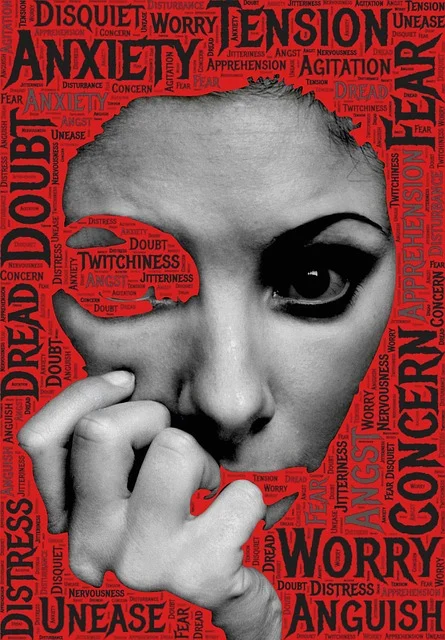Excoriation disorder is a mental illness characterized by compulsive skin picking, commonly referred to as Dermatillomania or skin picking disorder. This may result in wounds, infections, and scars, which could lower one’s sense of wellbeing and induce tension and anxiety. Therapy and medicine are frequently used in conjunction to treat this illness.
This article explains signs and symptoms, causes, diagnosis and treatment of excoriation disorder.
Excoriation disorder (skin picking disorder)
A person with Dermatillomania or excoriation is a mentally ill individual who obsessively picks or scratches their skin, leading to wounds or scarring. This ailment, which is classified as an obsessive-compulsive disorder (OCD), is also referred to as excoriation disorder or skin-picking disorder. This illness can have a serious negative impact on a person’s mental health, general wellbeing, and quality of life when it results in severe scars and damage.
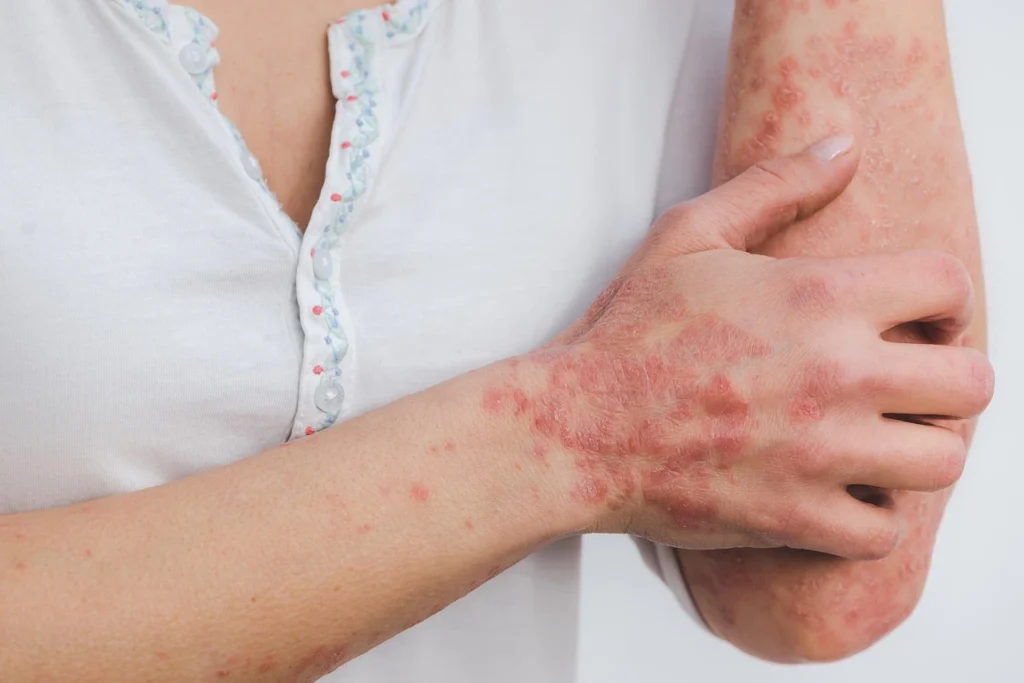
The name of this ailment, which is pronounced derm-ah-till-oh-main-ee-ah, comes from three Greek terms:
- Derma: the skin.
- Tillo: grasping, plucking.
- Mania: an extreme state of conduct or activity.
Types of skin picking disorder
- Automatic picking: Most of the time, automatic choosing happens without your conscious awareness. You can read, watch TV, or drive while doing it. Automatic picking is thought by experts to be a type of self-stimulation. When they pick at their skin, many people report feeling relieved, which is usually followed by feelings of guilt and rage.
- Focused picking: You may have an inclination to pick in a certain region and are typically more conscious of concentrated picking. These cravings might manifest as bodily sensations like skin tingling or itching, or they can manifest as concepts like the impulse to get rid of abnormalities like scabs, sores, or pimples. Experts speculate that deliberate selecting could be an attempt to stave off discomfort or boredom.
Symptoms of excoriation disorder
The inability or significant difficulty of resisting the need to pick at your skin is the primary symptom of Dermatillomania. The term “picking” can refer to any of the following:
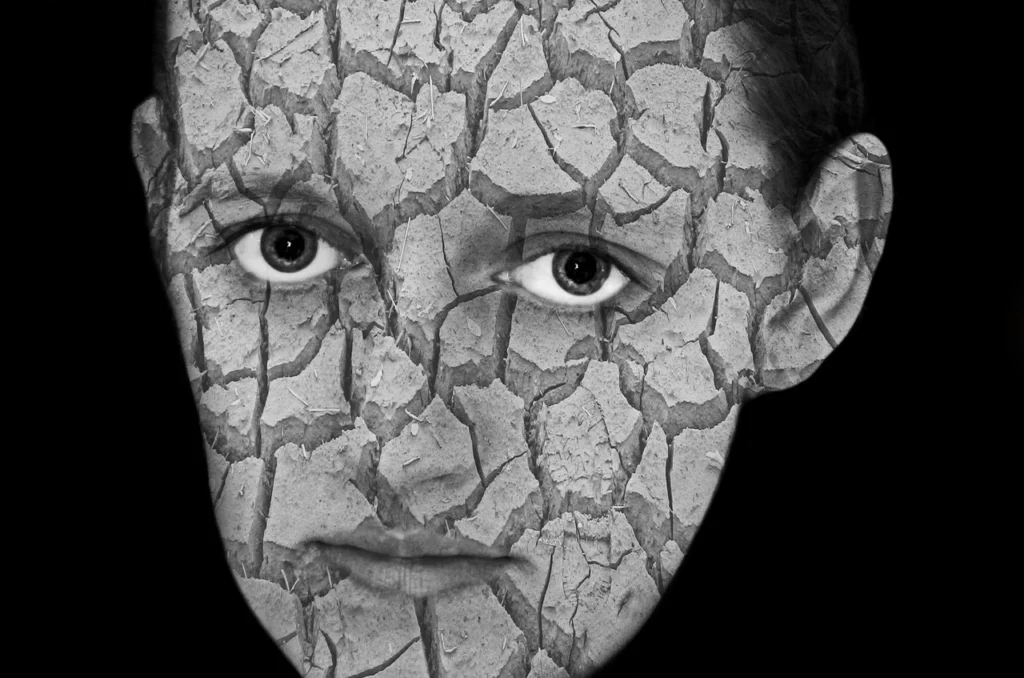
- Rubbing,
- Squeezing,
- Digging,
- Scratching
Most of us occasionally pick at our skin, but when you experience any of the following symptoms, it becomes a disorder:
- When you pick at your skin, it might cause sores, bruises, or scratches.
- You’ve made an attempt to stop, but you can’t
- It’s interfering with your day-to-day activities or you feel angry or ashamed.
Dermatillomania typically pick at their skin using their fingers or fingernails, but some also use scissors, tweezers, needles, and pins. Some will even bite at their lips with their teeth, for example.
Causes of excoriation disorder
Although the exact causation of Dermatillomania is unknown, scientists believe the following variables could be involved:
- Genetics. Individuals who suffer from Dermatillomania are significantly more likely to have at least one first-degree relative—a parent, sibling, or child—who also suffers from this disorder.
- Structural alterations in the brain. The brain regions that regulate learning and habit formation are more likely to show some significant structural abnormalities in those with Dermatillomania.
- Anxiety, tension, or other ailments. It’s possible that dermatology is a coping technique for other problems or mental health disorders. It could also have to do with boredom or other problems.
Diagnosis of excoriation disorder
Typically, your physician will employ several techniques to determine the nature of your illness, such as:
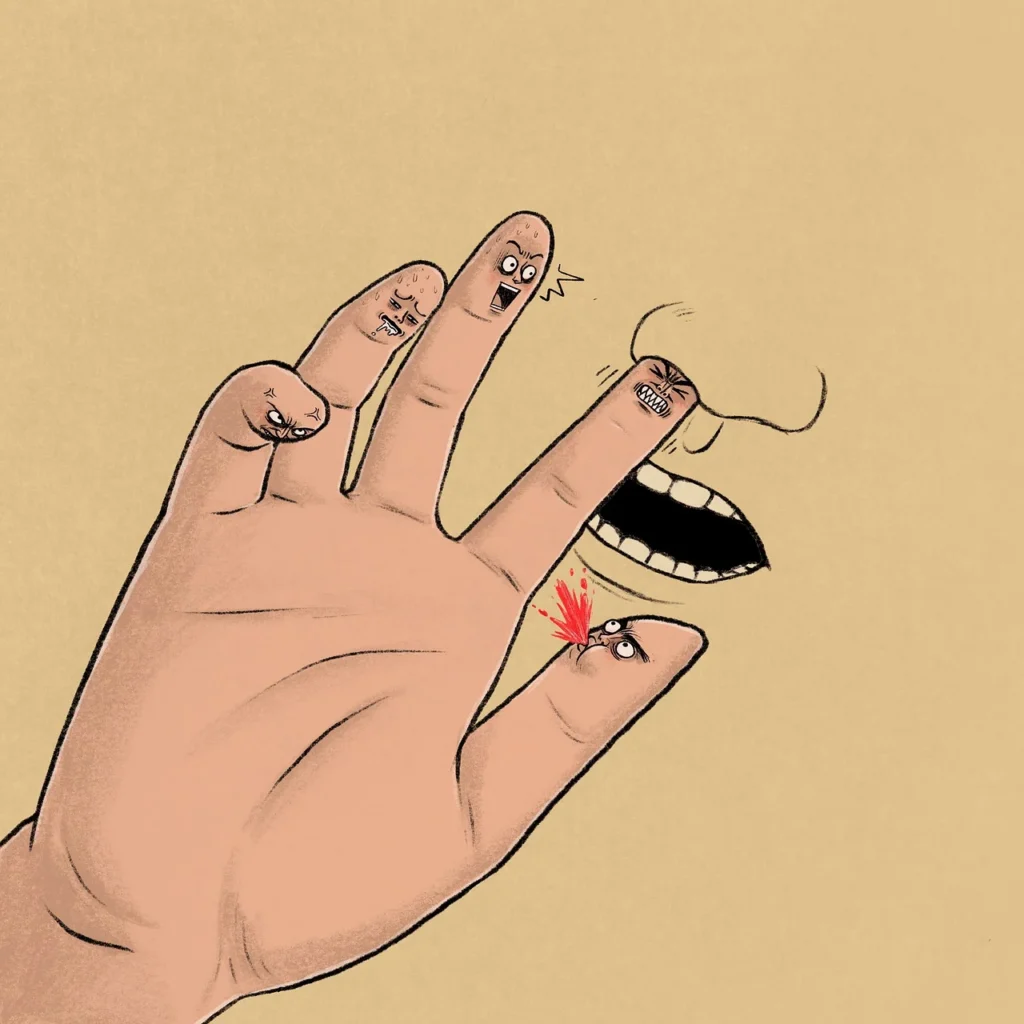
- a medical examination to check your body for any signs
- Inquiries concerning your health history, current situation, and any potentially relevant habits
- Diagnostic procedures can help rule out additional reasons for your illness
Your doctor will attempt to determine whether you fulfill five criteria in order to diagnose you with Dermatillomania:
- persistent or recurrent skin plucking
- You’ve tried to slow down or stop
- You experience negative emotions related to skin picking, such as humiliation or shame, which impact your social and professional life.
- Also You are not picking at your skin due to a medical illness, a skin problem, or the adverse effects of medication.
- You don’t pick at your skin because of any other mental health issues.
There is a higher likelihood of additional physical or mental health issues in those with Dermatillomania, including:
- OCD and associated conditions include trichotillomania, or hair pulling, and nail biting
- Depression
- Anxiety disorders
- Manic episodes
- Prader-Willi syndrome: a hereditary disorder affecting the body, behavior, and metabolism
Treatment of excoriation disorder
Medication and treatment are typically used in tandem to treat excoriation disorder. Studies indicate that the combination of the two is more likely to be beneficial than either treatment alone.
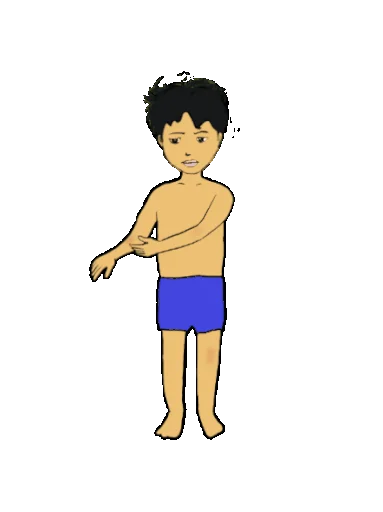
Medications
The following are the most often prescribed drugs by medical professionals to treat this condition:
- Drugs that fight depression. Serotonin reuptake inhibitors (SSRIs) are the most likely treatments for this.
- Drugs that prevent seizures. One drug that helps with uncontrollable muscle movements is lamotrigine. It may be helpful in certain Dermatillomania patients, according to research.
- Antipsychotics. These drugs work by altering the chemical equilibrium in your brain. These drugs are frequently used to treat a variety of illnesses, including schizophrenia, bipolar disorder, and dementia. Additionally, studies on their potential for treating ailments like Dermatillomania are still ongoing.
- Nutritional supplements. These are nutritional supplements that have the potential to impact physical or mental health issues. Research has shown that N-acetylcysteine, an amino acid supplement, can help lessen the impulse to pick in cases of Dermatillomania.
Therapies
Depending on the therapeutic approach chosen, psychotherapy can assist in treating this illness in a number of ways.
- Therapy for habit reversal. With this approach, your awareness of your habits and patterns of activity will increase. This therapy teaches you to break habits like skin plucking by increasing your awareness.
- Peer support and group therapy. Certain kinds of group treatment or support may be helpful for those with Dermatillomania.
- Therapy based on cognitive behavior (CBT). This approach entails imparting coping skills and behavior modification techniques.
- Commitment and acceptance treatment. By embracing the unpleasant emotions that underlie the action, this therapeutic approach assists clients in changing habits like skin plucking. Positive coping strategies such as mindfulness can come into play.



